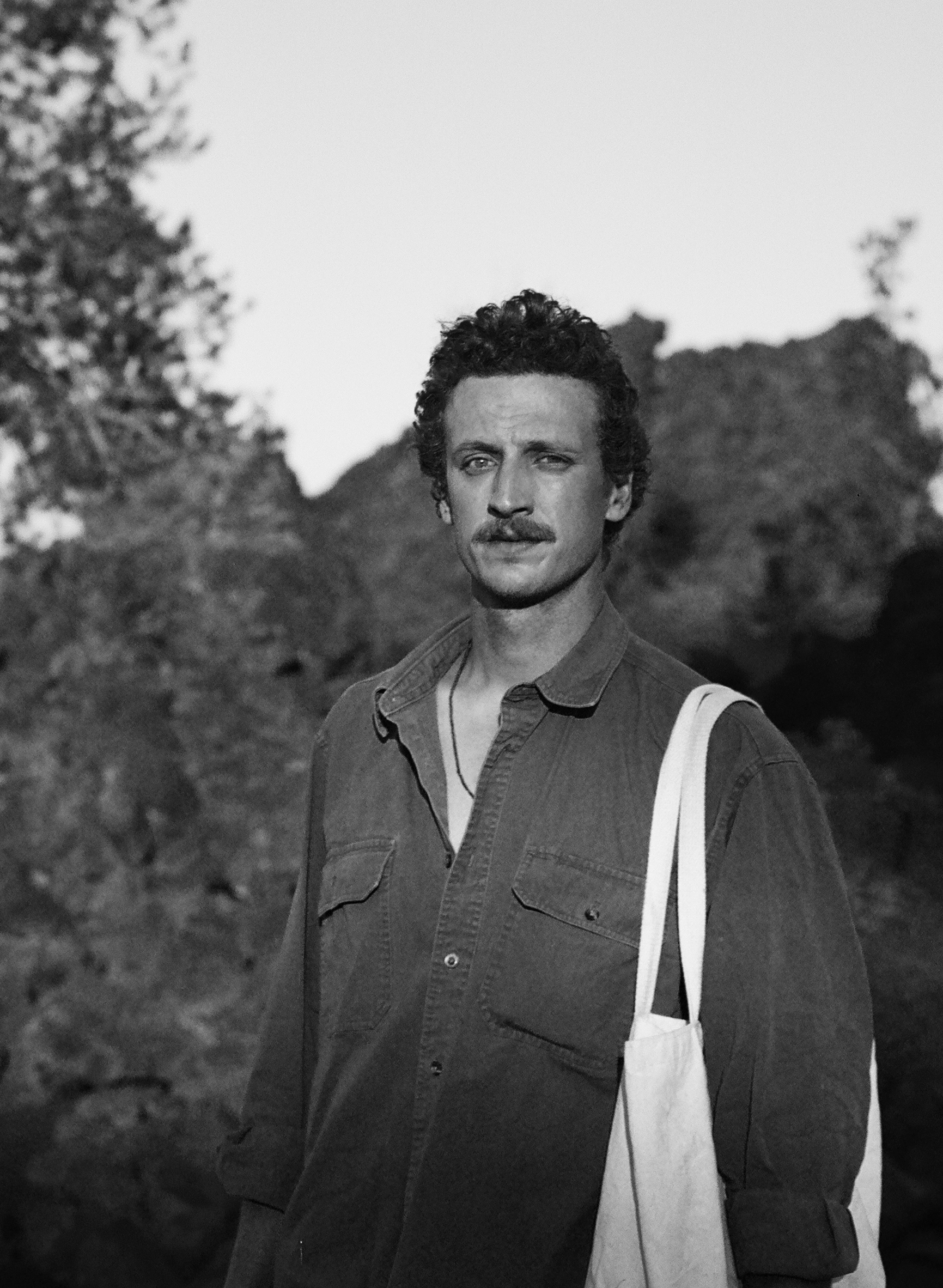AIDAN PATRICK WELBYb. 1997 St. Louis, Missouri
is an artist practicing sculpture. Through a deep commitment to language, Welby creates appositional works that redefine and recenter places within the American landscape. Earthworks, objects, photographs, and writings compose a portfolio bound by the intimacy of the local and projected towards an elevated universalism to participate in 21st-century dialogue regarding myth and its relation to ecology in the Anthropocene.
With a degree in Evolutionary Ecology, Welby’s research unsettles narratives in which the harmony of nature and the chaos of man exist and are at odds. Welby believes in a future stewarded by a dark ecology, where the disenchanted realism and humanist fatalism common to the Climate Crisis are supplanted by an Earth-fearing wonder and an irreversible fascination with the human condition.
Welby’s sculptural approach is grandmothered in the writings of Rosalind Krauss and Lucy Lippard, wherein the expanded field enables a practice ideologically after and outside of the binds of the studio. Through this dematerialization, and by way of a self-defined “Industrial Mannerism,” Welby creates works born of their site, nestled within their community, and yet firmly resistant to the economic and ecologic status quo. Grounded in immersive fieldwork, Welby’s work collapses generations of gathered understanding into discrete moments of political and environmental critique.
Welby was born at the confluence of the Missouri + Mississippi rivers, a nexus of West and East, yesterday and tomorrow. He lives on a vegetable farm on a rural island in the Puget Sound, where he maintains a studio practice, studies as a carpenter’s apprentice, and partakes in a sustainable forestry non-profit. He is conscious of this hermitic escapism as a privileged attempt to reject the pressures of a highly-socialized art world. His isolation is contrapuntal with quarterly communing via artist residencies, academic summits, and travel-based collaborative research with the United States Socio-Geological Survey.
With a degree in Evolutionary Ecology, Welby’s research unsettles narratives in which the harmony of nature and the chaos of man exist and are at odds. Welby believes in a future stewarded by a dark ecology, where the disenchanted realism and humanist fatalism common to the Climate Crisis are supplanted by an Earth-fearing wonder and an irreversible fascination with the human condition.
Welby’s sculptural approach is grandmothered in the writings of Rosalind Krauss and Lucy Lippard, wherein the expanded field enables a practice ideologically after and outside of the binds of the studio. Through this dematerialization, and by way of a self-defined “Industrial Mannerism,” Welby creates works born of their site, nestled within their community, and yet firmly resistant to the economic and ecologic status quo. Grounded in immersive fieldwork, Welby’s work collapses generations of gathered understanding into discrete moments of political and environmental critique.
Welby was born at the confluence of the Missouri + Mississippi rivers, a nexus of West and East, yesterday and tomorrow. He lives on a vegetable farm on a rural island in the Puget Sound, where he maintains a studio practice, studies as a carpenter’s apprentice, and partakes in a sustainable forestry non-profit. He is conscious of this hermitic escapism as a privileged attempt to reject the pressures of a highly-socialized art world. His isolation is contrapuntal with quarterly communing via artist residencies, academic summits, and travel-based collaborative research with the United States Socio-Geological Survey.
